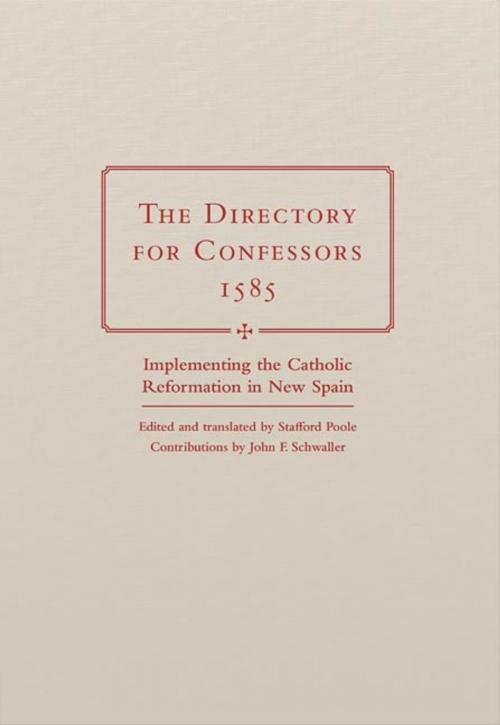The Directory for Confessors, 1585
Implementing the Catholic Reformation in New Spain
Nonfiction, History, Americas, Mexico, Religion & Spirituality, Christianity, Church, Church History, Denominations, Catholic, Catholicism| Author: | Stafford Poole, John F. Schwaller | ISBN: | 9780806161051 |
| Publisher: | University of Oklahoma Press | Publication: | March 15, 2018 |
| Imprint: | University of Oklahoma Press | Language: | English |
| Author: | Stafford Poole, John F. Schwaller |
| ISBN: | 9780806161051 |
| Publisher: | University of Oklahoma Press |
| Publication: | March 15, 2018 |
| Imprint: | University of Oklahoma Press |
| Language: | English |
In the late sixteenth century, after the Council of Trent and the Catholic Reformation, the confessional became a key means to improve morals and religious life—and, for the Catholic clergy of New Spain, a new avenue through which they might reach the consciences of Spaniards and improve their treatment of indigenous peoples. To this end, the bishops of the province of Mexico drafted a directorio in 1585 to guide the priesthood in fulfilling its duty according to current ecclesiastical ideals and social realities. That document, published here in English for the first time, offers an unrivaled view of the religious, social, and economic history of colonial Mexico.
Though never widely circulated, the Directorio para confesores (Directory for Confessors) contains an encyclopedic description of life in Mexico three generations after the European invasion. In addition to summarizing sixteenth-century Spanish concerns in the provinces, the Directory offers insight into the Catholic Church’s moral judgments on many aspects of colonial life. Translated by distinguished scholar Stafford Poole, the document embodies a remarkable knowledge of scripture and law and reflects the concerns of the Spanish crown and what was happening in New Spain. The Directory instructs its clergy audience in the proper methods to combat superstition among the Spaniards, helps them navigate the variety of business contracts used in Creole society at the time, and details the obligations of those in various social stations, from viceroys to tavern keepers. It also condemns the forced labor of native people under the repartimiento system, especially in the mines.
Rendered in clear prose and illuminated with helpful introductory chapters by Poole and John F. Schwaller, extensive annotations, and a glossary of terms, this volume offers unparalleled insights into life and thought in sixteenth-century New Spain.
In the late sixteenth century, after the Council of Trent and the Catholic Reformation, the confessional became a key means to improve morals and religious life—and, for the Catholic clergy of New Spain, a new avenue through which they might reach the consciences of Spaniards and improve their treatment of indigenous peoples. To this end, the bishops of the province of Mexico drafted a directorio in 1585 to guide the priesthood in fulfilling its duty according to current ecclesiastical ideals and social realities. That document, published here in English for the first time, offers an unrivaled view of the religious, social, and economic history of colonial Mexico.
Though never widely circulated, the Directorio para confesores (Directory for Confessors) contains an encyclopedic description of life in Mexico three generations after the European invasion. In addition to summarizing sixteenth-century Spanish concerns in the provinces, the Directory offers insight into the Catholic Church’s moral judgments on many aspects of colonial life. Translated by distinguished scholar Stafford Poole, the document embodies a remarkable knowledge of scripture and law and reflects the concerns of the Spanish crown and what was happening in New Spain. The Directory instructs its clergy audience in the proper methods to combat superstition among the Spaniards, helps them navigate the variety of business contracts used in Creole society at the time, and details the obligations of those in various social stations, from viceroys to tavern keepers. It also condemns the forced labor of native people under the repartimiento system, especially in the mines.
Rendered in clear prose and illuminated with helpful introductory chapters by Poole and John F. Schwaller, extensive annotations, and a glossary of terms, this volume offers unparalleled insights into life and thought in sixteenth-century New Spain.















